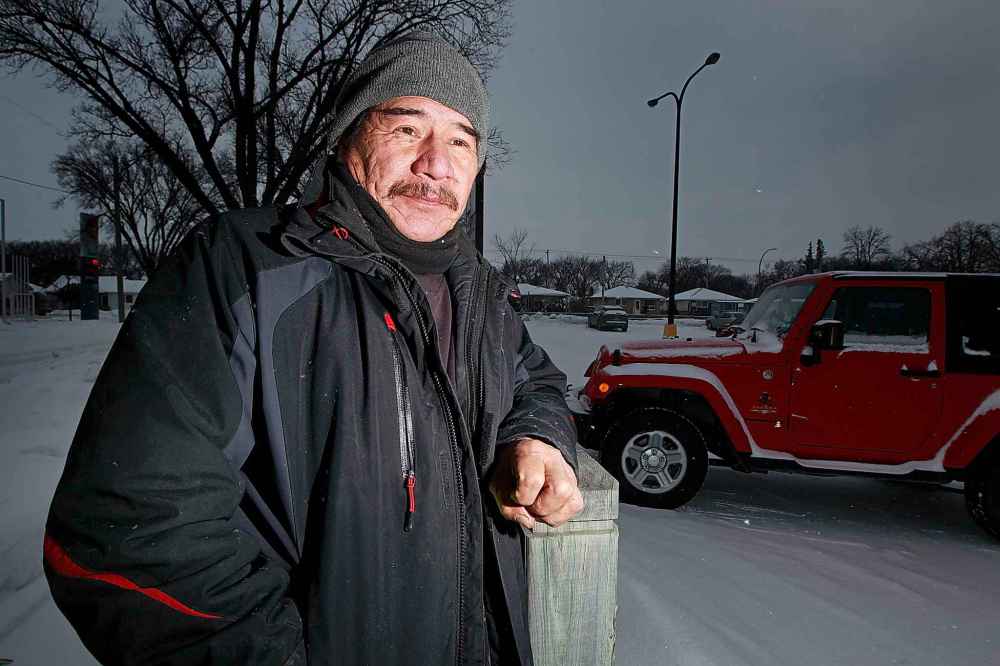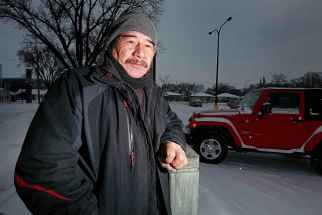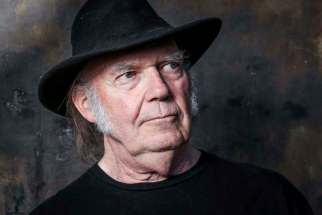‘There was nobody I could turn to’ Innocence Canada takes up case of Winnipeg man more than four decades after murder conviction
Read this article for free:
or
Already have an account? Log in here »
To continue reading, please subscribe:
Monthly Digital Subscription
$0 for the first 4 weeks*
- Enjoy unlimited reading on winnipegfreepress.com
- Read the E-Edition, our digital replica newspaper
- Access News Break, our award-winning app
- Play interactive puzzles
*No charge for 4 weeks then price increases to the regular rate of $19.00 plus GST every four weeks. Offer available to new and qualified returning subscribers only. Cancel any time.
Monthly Digital Subscription
$4.75/week*
- Enjoy unlimited reading on winnipegfreepress.com
- Read the E-Edition, our digital replica newspaper
- Access News Break, our award-winning app
- Play interactive puzzles
*Billed as $19 plus GST every four weeks. Cancel any time.
To continue reading, please subscribe:
Add Free Press access to your Brandon Sun subscription for only an additional
$1 for the first 4 weeks*
*Your next subscription payment will increase by $1.00 and you will be charged $16.99 plus GST for four weeks. After four weeks, your payment will increase to $23.99 plus GST every four weeks.
Read unlimited articles for free today:
or
Already have an account? Log in here »
Hey there, time traveller!
This article was published 01/02/2019 (2506 days ago), so information in it may no longer be current.
In the darkness of the early morning, July 17, 1973, the sound of Ting Fong Chan’s footsteps falling upon the paved walkways of Winnipeg’s Exchange District echoed quietly through the air.
A cook at a downtown restaurant, where he’d just finished a night shift, Chan, 40, set out alone to walk home around midnight. He never made it.
His bloodied corpse was found on red-stained concrete at the corner of Isabel Street and McDermot Avenue that morning. His son waiting at home, and his wife and daughter in China, would never see him again.

The autopsy conducted that afternoon determined he’d been beaten and stabbed to death. It was, in the words of one investigating detective: “A bloody murder, a very vicious murder.”
Who had committed the heinous attack? That was the question police detectives assigned to the case set out to answer in the days after the grisly discovery — a search that led them to 18-year-old Brian Anderson.
Anderson was implicated alongside three others: Allan John Woodhouse, 17; Russell James Woodhouse, 19; and Clarence Clifford Woodhouse, 21.
The four childhood friends from Fairford First Nation (now known as Pinaymootang, 240 kilometres northwest of Winnipeg) were charged with the slaying — the adults with capital murder, the youth with manslaughter.
Following a 12-day trial in February 1974, they were found guilty by an all-male jury — thanks in large part to written confessions they had reportedly signed while in police custody.
The man responsible for securing the convictions was then a rising star in Manitoba legal circles: George Dangerfield. In recent decades, however, the former prosecutor has gained the distinction of being responsible for the most wrongful convictions in the country.
And like James Driskell, Thomas Sophonow, Kyle Unger, and Frank Ostrowski before him, Brian Anderson, now 63, is proclaiming his innocence. Maintaining that stance since the moment he was first picked up by police for questioning, through his charging, trial, and conviction for capital murder, and a subsequent decade-long imprisonment.
Now, almost 45 years after the verdict was delivered, there’s someone trying to help clear his name: Jerome Kennedy of Innocence Canada (a Toronto-based non-profit organization focused helping to right wrongful convictions), who believes Anderson was the first victim of the questionable tactics that made Dangerfield one of the most infamous prosecutors in Canadian history.
“Immediately upon seeing that Mr. Dangerfield was involved in the prosecution, that the Winnipeg Police Service was involved, and it was four Indigenous men accused, alarm bells started going off in my head,” said Kennedy, an attorney and former provincial politician from Newfoundland and Labrador.
“I was aware of how Mr. Dangerfield worked with the Winnipeg Police Service. In my mind, the formula for a wrongful conviction was present.”
Timeline
July 17, 1973 — Ting Fong Chan, 40, murdered in downtown Winnipeg
July 17-24, 1973 — Police investigation
July 23, 1973 — Brian Anderson arrested
Feb. 18 to March 5, 1974 — Trial
March 5, 1974 — Four co-accused convicted
July 23, 1983 — Anderson granted full parole
Dec. 20, 2006 — Anderson first contacts AIDWYC (precursor to Innocence Canada)
2018 — Innocence Canada begins work on Anderson case
January 2019 — Innocence Canada files a request to federal justice minister to review file and overturn conviction
When he began digging into the details of the police investigation into the co-accused, as well as the trial transcripts, Kennedy realized there was no “physical” or “forensic evidence” tying Anderson to the crime.
The case, it seemed to him, hinged upon the alleged confession Anderson — an 18-year-old with a Grade 6 education — signed when interrogated by police in English (his second language) without legal representation.
On Friday, during his lunch break from his job as a carpenter, Anderson explained to the Free Press how the alleged confession came to be. From the moment police began questioning him, he said he provided an alibi and denied any involvement or knowledge of the crime.
“They frisked me at the time and they took out whatever contents I had. And then later on they told me, ‘OK, we’ll give you your personal belongings back if you sign for them over here,’” Anderson said.
It was then he claims police held out a paper for him to sign. Anderson said he signed the page without reading it, thankful he was being allowed to leave. It didn’t dawn on him what had happened until he was placed in lockup: he’d signed a confession.
It would be a decade before Anderson was released from custody.
“I didn’t know any better at the time. Thinking about it now, those were the best years of my life that were taken away. I didn’t know at the time, I was too young to know any better. I was too young to know what life was about,” he said.
All four of the accused would later dispute the reported confessions, and claim they’d been subject to police brutality while under interrogation.
In the aftermath of the trial, Dangerfield wrote a letter to the chief of the then-Winnipeg Police Department, explaining how grateful he was for the “excellent work” of the investigating detectives on the case.
“I would like to single out for special mention (the detectives) for the excellent way in which they gave their evidence in respect of the taking of the statements. Without the statements, this case would have been lost entirely,” Dangerfield wrote.
The problems with the alleged confessions don’t end there, according to Kennedy, who said during the 1974 trial a psychologist was called to testify to the cognitive abilities of co-accused Russell Woodhouse, who suffered from a developmental disability.
“You have four young Indigenous kids and English was the second language for all of them. (Russell) was delayed to the extent he didn’t speak in sentences, yet we have this written confession in full sentences,” Kennedy said.
“The sentences that were attributed to him were not sentences that he could put together. Not only did you have the linguistic and cultural issues, for one individual, there was a real issue if he possessed the intellectual capability to give the statement that was alleged by police.”
Anderson was granted full parole on July 23, 1983. He looks back on the prison years as some of the darkest and most difficult of his life.
“It is difficult. You try not to think about it. You got to make it day to day, year to year. You’ve still got to live. A lot of the time was hard, but you’ve got to keep going,” Anderson said. “There was nothing I could do about it. There was nobody I could turn to.”
‘I was aware of how Mr. Dangerfield worked with the Winnipeg Police Service. In my mind, the formula for a wrongful conviction was present.’– Jerome Kennedy, Innocence Canada
After being released from custody, Anderson worked in trades, got married, and tried to carry on with life as best he could. He’s a father of two, and a grandfather, and has lived in Winnipeg since his release.
He remains subject to parole conditions to this day.
Anderson first contacted Association in Defence of the Wrongly Convicted (the precursor to Innocence Canada) in 2006. However, it wasn’t until Kennedy was looking for a new case last year, and realized there were serious questions about the police tactics and prosecution on this file, that he began working with Anderson.
“You get this cascading effect off the tainted statements. There was no physical evidence. There was no forensic evidence. Nothing that tied these individuals to the crime,” Kennedy said.
“That leads to police tunnel vision. Police tunnel vision and a desire to win that resulted in a conviction.”
In January 2019, Innocence Canada filed a request for a review of the case by the federal justice minister, hoping, nearly a half-century later, Anderson’s name might finally be cleared.
A spokesman for the Winnipeg Police Service declined comment for this story, saying it would be improper to speak publicly about the case given the Innocence Canada application, adding the department will co-operate with any such review.
It remains unclear how long it could take before a ruling on the request is reached, although it’s not inconceivable it could be months, if not years.
In the meantime, Anderson continues to work and live in Winnipeg, hoping one day he might finally know unconstrained freedom for the first time since he was 18.
Asked what it would mean to be able to jump in a vehicle and drive past the city limits without first checking in with a parole officer, Anderson paused for moment before answering.
“I always hope for that. I need that. It would be such a wonderful thing,” he said, in a soft-spoken manner.
“I would just scream with joy.”
ryan.thorpe@freepress.mb.ca
Twitter: @rk_thorpe

Ryan Thorpe likes the pace of daily news, the feeling of a broadsheet in his hands and the stress of never-ending deadlines hanging over his head.
Our newsroom depends on a growing audience of readers to power our journalism. If you are not a paid reader, please consider becoming a subscriber.
Our newsroom depends on its audience of readers to power our journalism. Thank you for your support.
History
Updated on Sunday, February 3, 2019 9:41 AM CST: pullquote attribution corrected










